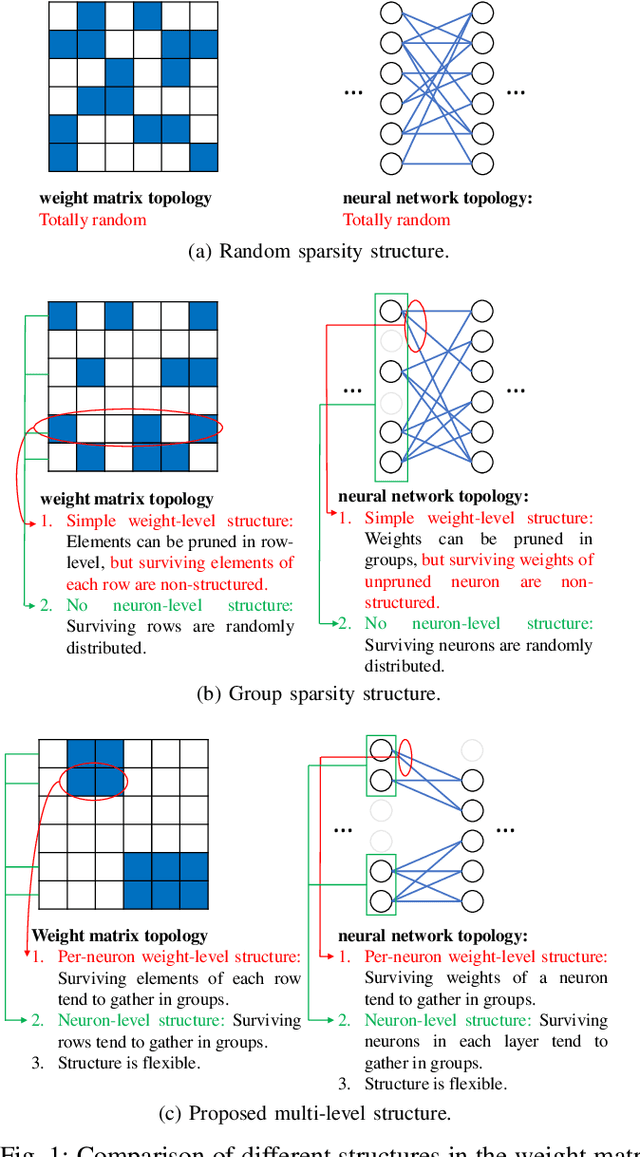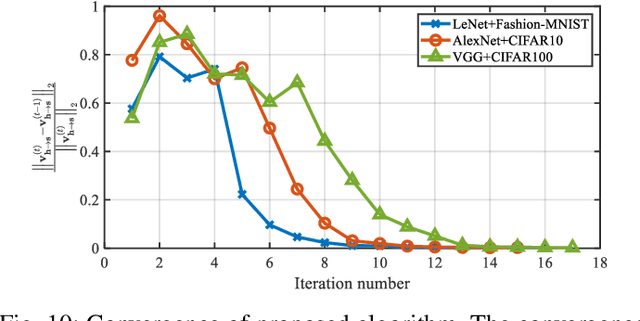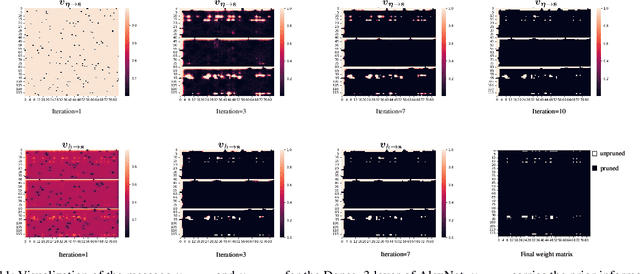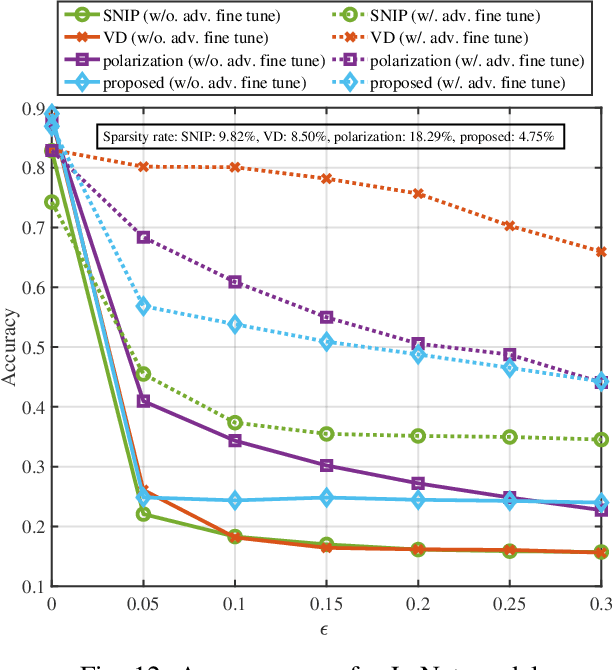Chengyu Xia
Bayesian Federated Model Compression for Communication and Computation Efficiency
Apr 11, 2024Abstract:In this paper, we investigate Bayesian model compression in federated learning (FL) to construct sparse models that can achieve both communication and computation efficiencies. We propose a decentralized Turbo variational Bayesian inference (D-Turbo-VBI) FL framework where we firstly propose a hierarchical sparse prior to promote a clustered sparse structure in the weight matrix. Then, by carefully integrating message passing and VBI with a decentralized turbo framework, we propose the D-Turbo-VBI algorithm which can (i) reduce both upstream and downstream communication overhead during federated training, and (ii) reduce the computational complexity during local inference. Additionally, we establish the convergence property for thr proposed D-Turbo-VBI algorithm. Simulation results show the significant gain of our proposed algorithm over the baselines in reducing communication overhead during federated training and computational complexity of final model.
Structured Bayesian Compression for Deep Neural Networks Based on The Turbo-VBI Approach
Feb 21, 2023



Abstract:With the growth of neural network size, model compression has attracted increasing interest in recent research. As one of the most common techniques, pruning has been studied for a long time. By exploiting the structured sparsity of the neural network, existing methods can prune neurons instead of individual weights. However, in most existing pruning methods, surviving neurons are randomly connected in the neural network without any structure, and the non-zero weights within each neuron are also randomly distributed. Such irregular sparse structure can cause very high control overhead and irregular memory access for the hardware and even increase the neural network computational complexity. In this paper, we propose a three-layer hierarchical prior to promote a more regular sparse structure during pruning. The proposed three-layer hierarchical prior can achieve per-neuron weight-level structured sparsity and neuron-level structured sparsity. We derive an efficient Turbo-variational Bayesian inferencing (Turbo-VBI) algorithm to solve the resulting model compression problem with the proposed prior. The proposed Turbo-VBI algorithm has low complexity and can support more general priors than existing model compression algorithms. Simulation results show that our proposed algorithm can promote a more regular structure in the pruned neural networks while achieving even better performance in terms of compression rate and inferencing accuracy compared with the baselines.
 Add to Chrome
Add to Chrome Add to Firefox
Add to Firefox Add to Edge
Add to Edge